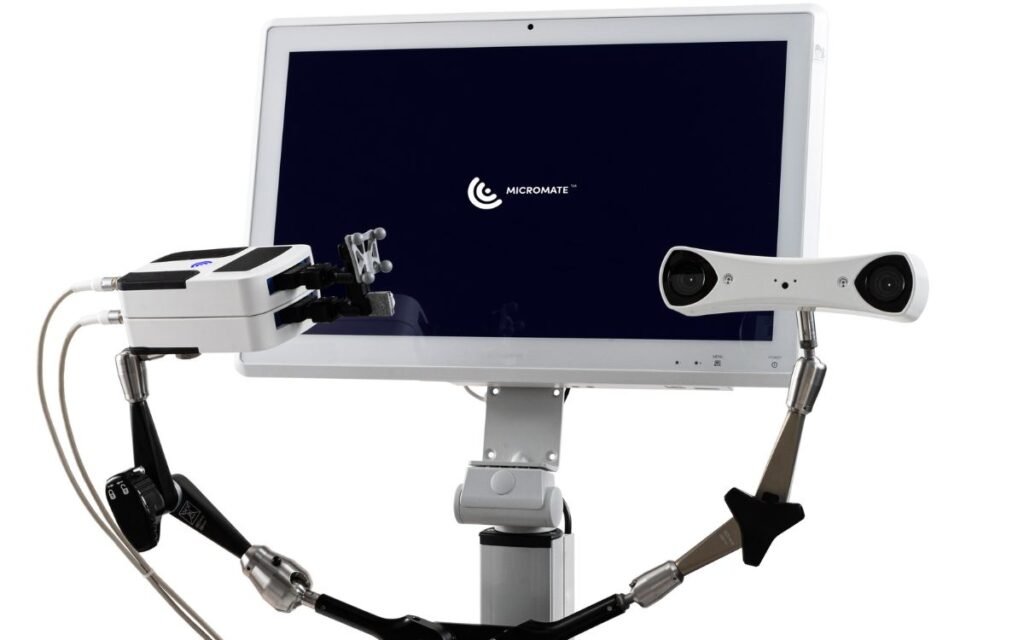Interventional Systems, the brains behind a compact yet powerful robotic marvel, is set to leave a profound mark in the world of medical technology. Their groundbreaking Micromate system, designed to facilitate needle-based medical procedures, has just received a pivotal FDA clearance, expanding its scope to encompass CT imaging applications.
The shoebox-sized Micromate is ingeniously affixed to the scanner’s table, strategically positioned above the patient. This strategic placement aids in the precise alignment of essential medical instruments like biopsy and ablation probes. Furthermore, it offers healthcare providers the invaluable advantage of reducing radiation exposure—a leap towards enhancing patient care.
“This clearance is a long-awaited milestone for us, and it allows us to meet the growing demand for our system in the US. We are already in the process of executing the first installations overseas, bringing the benefits of our robotic platform to U patients.”
– Pedro Costa, CEO of Germany-based Interventional Systems
Micromate initially secured a 510(k) clearance back in 2021 for percutaneous procedures that leveraged real-time fluoroscopy or C-arm cone-beam CT hardware. What sets this joystick-equipped system apart is its universal compatibility with a surgeon’s existing instruments, making it a versatile and user-friendly addition to the operating room.
Also Read: Virtual Incision Secures $30M Funding To Expand Its Mini-Robot For Laparoscopic Surgery
Srdjan Milosavljevic, Chief Technology Officer, highlighted the robust clinical data that underpinned their FDA submission, emphasizing the system’s exceptional precision across all major anatomical regions. This precision not only speeds up procedures but also enhances safety, a paramount concern in medical interventions.
To seamlessly integrate with CT scanners, Micromate employs a dedicated planning and navigation console, meticulously charting the course of the needle. A tracking camera discreetly positioned inside the gantry allows it to excel in performing biopsies in critical areas like the lung, spleen, or bone lesions. The system’s impact is felt profoundly, as it significantly reduces the need for multiple scans, streamlining the process to just an initial and verification scan. This leap in efficiency encompasses image acquisition, trajectory planning, instrument alignment, precise lesion targeting, and final confirmation.
The Micromate’s newfound capabilities offer a glimpse into the transformative power of robotics in modern medicine, promising enhanced precision, efficiency, and patient care. Interventional Systems is at the forefront of this revolution, setting new standards in the field of interventional radiology. With FDA’s green light, they are poised to make a substantial impact on healthcare in the US and beyond.





























